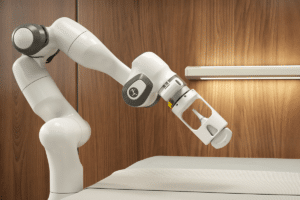Table of Contents
Telemedicine, robotics, AI, and augmented reality are just some examples of digital health technology which have improved by leaps and bounds over the past couple of decades. Not only have these digital devices made a variety of medical tasks quicker and easier but they have also gained a huge uptick in prominence regarding medical learning as well as medical practice.
Such advancements can positively impact patient outcomes thanks to better communications between plastic surgeons and patients, and also increased precision and accuracy.
How IT is Impacting Healthcare
According to Dr David Alessi from the Alessi Institute and Dr Jamil al Jamali from Medcare Hospital al Safa, IT, or information technology, is an increasingly important component in a wide variety of medical procedures, especially the plastic surgery industry. Systems to schedule surgical teams, telemedicine and surgical information systems are all advancements which have positively impacted healthcare as a whole.
Technology for processing and accountancy for patients has also streamlined and sped up the process, while new technology allows doctors to create a visual idea of surgery outcome to better communicate this with patients. In both pre- and post-surgical procedures as well as during the procedures, innovative equipment and technology have made possible what was harder or not possible before.
Digital Facial Morphing Technology
According to Alessi, not only is morphing technology an excellent tool to show patients the likely outcome of their surgeries but it’s also good to demonstrate why a plastic surgeon is recommending one option over another. Revisions can be made even during telemedicine consultations via this morphing technology.
For example, if a patient complains their nose is out of proportion because it is too large but the actual reason is the chin is too small, the plastic surgeon and patient can preview an augmentation on the chin so the patient can see the before/after and understand what the plastic surgeon is explaining to them. This technology means a medical professional can use digital augmentation to preview what the suggested surgery would look like, making sure the patient is satisfied with the likely facial harmony they can expect as a result.
Technologies for facial morphing are integrated in a number of mainstream apps. According to Dr Jamali, these technologies play an important role in encouraging patients to embark on plastic surgery or cosmetic surgery. Instagram filters, for example, create the illusion of better features or smoother skin, which might encourage a patient to explore rhinoplasty or facial fillers. Augmented reality apps creating the illusion of a larger bust or slimmer legs might make some patients more accepting of breast augmentation or liposuction, for instance.
The Dangers of Body Dysmorphic Syndrome
One definite challenge in the world of plastic surgery however is body dysmorphic syndrome and the increased incidences of this are partly due to the media influencing what people believe the human body should look like with unrealistic images and videos.
Perhaps a patient brings a photo of a celebrity to a plastic surgeon. A good surgeon will offer examples of what is possible, focusing on realistic expectations which the patient can see thanks to digital morphing.
The Future of Medical AI
AI is helpful in a variety of medical settings, such as predicting diagnoses and helping identify those with body dysmorphic syndrome. Some 20 years ago, a machine was created that could assess both burn depth and healing time of burns patients. It is also useful in the operating room because it increases precision and accuracy during the surgery.
However, despite the huge advancements in AI such as stem cell use in plastic surgery, it still has a way to go and there are sure to be many more innovations in the future.







